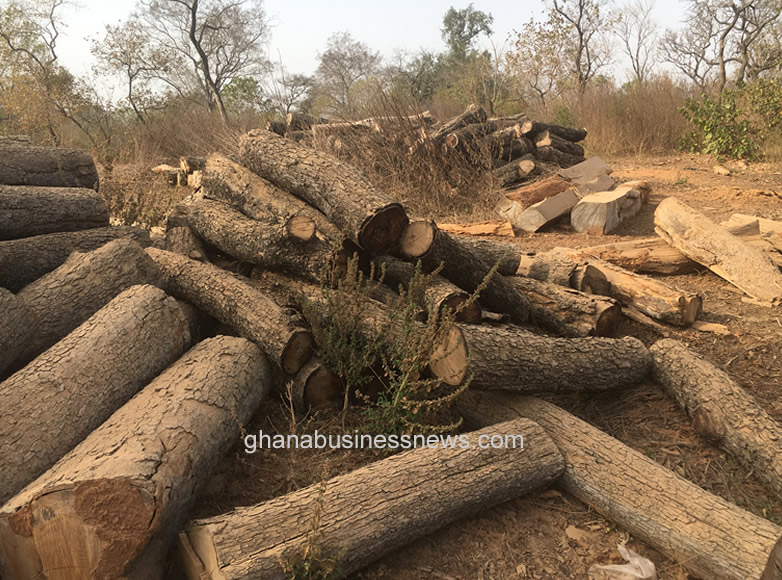CITES bans exports of rosewood from West African countries including Ghana
 On June 8, 2022 a historic decision was reached by the Convention on International Trade in Endangered Species of Wild Fauna and Flora (CITES). On that day CITES announced the immediate suspension of international trade in rosewood from West Africa. The ban affects all countries in West Africa as well as Cameroon and the Central African Republic.
On June 8, 2022 a historic decision was reached by the Convention on International Trade in Endangered Species of Wild Fauna and Flora (CITES). On that day CITES announced the immediate suspension of international trade in rosewood from West Africa. The ban affects all countries in West Africa as well as Cameroon and the Central African Republic.
According to the Environmental Investigation Agency (EIA), as of April 2022 over three million tons of rosewood amounting to $2 billion had been illegally traded between West African counties and China over a five-year period. The top exporters have been identified as Sierra Leone, The Gambia, Mali, and Ghana.
And despite repeatedly announced bans on the illegal harvesting and export of rosewood in Ghana, between March and December 2019, more than 147,000kg of rosewood left Ghana to China.
Chinese customs trade data showed that 147,760,190kg of rosewood with a value of $87,628,864 was imported from Ghana into China from March to December 2019.
In December 2019, data showed that 7,941,771kg of rosewood with a value of $5,368,120 was still being imported from Ghana by China, the Director of Forests Campaign of the EIA, Lisa Handy told Ghana Business News in 2020.
The EIA applauding the ban, described it as a “historic move to ban trade in what has become the world’s most trafficked wildlife commodity.”
The suspension is expected to remain in force until countries can credibly prove to the CITES Secretariat and the Chairs of the Standing Committee and Plants Committee that trade will be legal and sustainable through respective legal acquisition and non-detriment findings.
The decision is also binding on all 184 member States of the Convention, including importing countries such as China – the country won’t be able to accept illegal exports of rosewood so far as the ban remains in force.
Godwin Dzekoto, the Northern Sector Manager of the environmental activist group, Arocha told Ghana Business News, the step by CITES to suspend the international trade in rosewood is laudable and a bold step in protecting the ecological integrity of Ghana.
“This indeed gives us the leverage to put in measures that ensure as a country, we have the necessary legal and institutional frameworks in place to ensure the sustainable utilisation of the species.
This might temporarily affects exports earnings for the country and also affects livelihoods of communities, but it better places us in the position to show commitments in securing our ecosystem for prosperity since the current regime is unsustainable and illegal. Once systems are in place, we can benefit fully from the resources,” he said.
In 2019 and 2020, Ghana Business News did two investigations on the illegal harvesting and exports of rosewood out of Ghana. The first story looked at the situation in the Upper West Region and the second one looked at the activities of illegal loggers in three regions – the Northern, Savannah and North East Regions.
The stories received worldwide reactions and compelled the Ministry of Lands and Natural Resources to issue statements. The Forestry Commission, however in both instances didn’t even acknowledge receipt of letters seeking clarification on the matter.
By Emmanuel K. Dogbevi
Copyright ©2022 by NewsBridge Africa
All rights reserved. This article or any portion thereof may not be reproduced or used in any manner whatsoever without the express written permission of the publisher except for the use of brief quotations in reviews.
